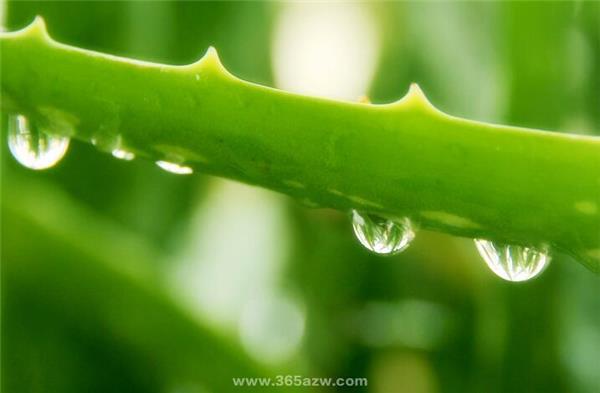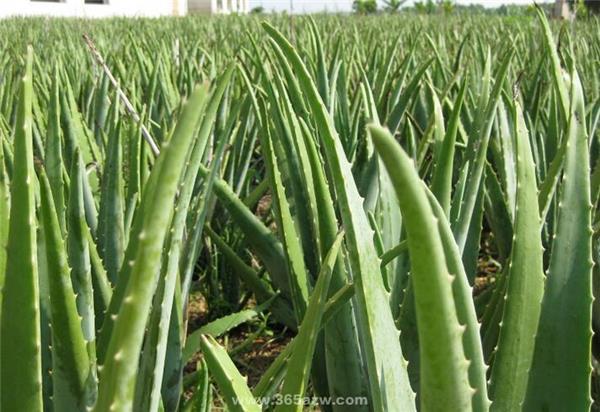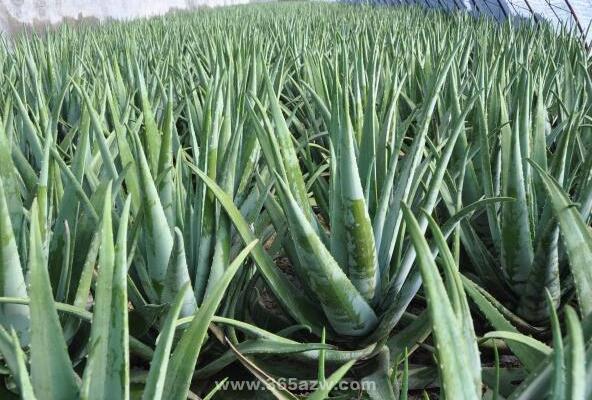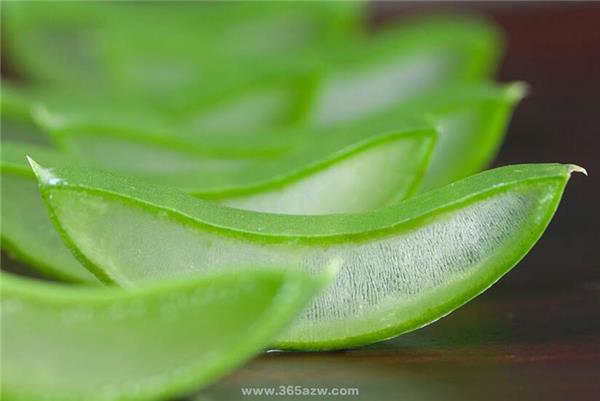Culture methods and matters needing attention of Aloe vera
Aloe Vera is a very good cultivation of plants, aloe cultivation methods and what matters needing attention? Let's take a look.

There are at least 300 species of aloe, of which there are about 250 species in Africa, about 40 species in Madagascar, and the remaining 10 species in Arabia. Aloe varieties of nature and shape vary greatly, some like huge trees, up to 20 meters, some height is less than 10 cm, its leaves and flower shapes also have many kinds, cultivation has its own characteristics, varied, deeply loved by people. Aloe is a tropical plant, natural cold, but also good kind of live.
Aloe Vera is the best plant, dry water, this is a lazy plant. Aloe vitality is very strong, extremely good to raise, its growth characteristics are like sunshine, but fear the sun; like wet, but avoid water; high temperature resistance, fear of cold.
The role of aloe vera:
Aloe is a good hand at absorbing formaldehyde, and has strong medicinal value, such as sterilization, beauty effect. Now has developed a lot of potted aloe, has a strong ornamental, can be used to decorate the room. Aloe loves yang and is more suitable for placement in bright places to maximize its effectiveness. According to tests, a pot of aloe can absorb about 90% of formaldehyde in one cubic meter of air.
Aloe Vera farming precautions
(1) Aloe vera grows faster and should be replaced once a year when it leaves the room in spring. The pot soil can be cultivated by 3 parts of rotten leaf soil, 13 parts of garden soil, 4 parts of river sand or 3 parts of rotten leaf soil, 2 parts of garden soil, 3 parts of river sand and 2 parts of pearlite, and a small amount of fully decomposed organic fertilizers such as chicken manure, bone meal and oil residue can be applied as base fertilizer.

(2) If the culture soil is changed once a year, when the nutrients are sufficient, no topdressing or less topdressing can be applied during the growth period. Summer and autumn growth is the fastest, can be applied every 15 to 20 days 1 thin liquid fertilizer. Such as topdressing 10%~15% fully fermented cake fertilizer water or 0.1% urea fertilizer water plus 0.1% potassium dihydrogen phosphate water, etc. Winter and spring can not be fertilized.
(3) Summer is the peak season for aloe growth, so attention should be paid to the supply of water and fertilizer. When the sun is strong, the noon light should be properly blocked. Aloe vera cannot be cultivated with hygrophilous plants. It is sufficient not to dry the soil excessively when flowering.
(4) Ensure sufficient light in autumn and water properly. Aloe is not cold-resistant, after the temperature drops, it should be moved in time to have a closed balcony or room with light, pay attention to water control, so that the basin soil is dry but not dry.

(5) Aloe Vera needs sufficient sunlight to grow. It should be noted that aloe vera should not be exposed to the sun for the first time. It is best to see the sun only in the morning and gradually increase the light after 10 days. Family potted plants, spring and autumn on the balcony or outdoor windowsill to receive direct sunlight will grow strong; summer moved to a well-ventilated semi-shady place; winter indoor light sufficient place, room temperature is not less than 10℃ is appropriate.
(6) Aloe Vera requires full sunlight throughout the year. In spring, it is best to move outdoors and place it on the balcony in the south, or on the windowsill of the south window, but avoid rain. Although aloe vera does not like too much moisture, it needs sufficient moisture during its growth period, especially under strong light. To encourage the plant to spread around, you can cut off some of the overgrown leaves evenly in the center, so that the plant will not rot due to the excessive density of leaves under strong light.

The above is the aloe cultivation methods and precautions related to the introduction, I hope you can like today's article.
Related
- Wuhan Hospital Iron Tree Blooming Result Was Instantly Frightened by the Gardener Master
- Which variety of camellia is the most fragrant and best? Which one do you like best?
- What is the small blue coat, the breeding methods and matters needing attention of the succulent plant
- Dormancy time and maintenance management of succulent plants during dormancy
- Minas succulent how to raise, Minas succulent plant pictures
- What are the varieties of winter succulent plants
- How to raise succulent plants in twelve rolls? let's take a look at some experience of breeding twelve rolls.
- Attention should be paid to water control for succulent plants during dormant period (winter and summer)
- Watering experience of twelve rolls of succulent plants
- Techniques for fertilizing succulent plants. An article will let you know how to fertilize succulent plants.



